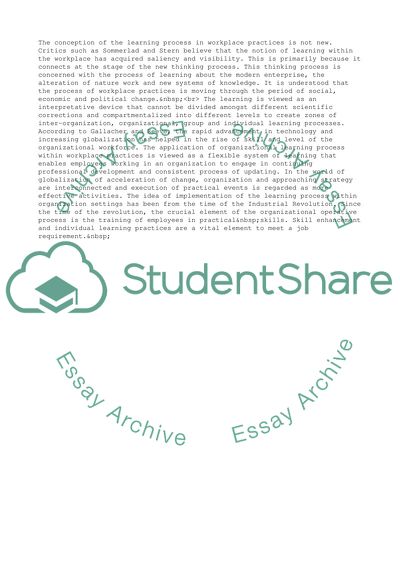Cite this document
(“Contribution of organizational learning to contemporary understandings Essay”, n.d.)
Contribution of organizational learning to contemporary understandings Essay. Retrieved from https://studentshare.org/business/1684194-contribution-of-organizational-learning-to-contemporary-understandings-of-workplace-practices
Contribution of organizational learning to contemporary understandings Essay. Retrieved from https://studentshare.org/business/1684194-contribution-of-organizational-learning-to-contemporary-understandings-of-workplace-practices
(Contribution of Organizational Learning to Contemporary Understandings Essay)
Contribution of Organizational Learning to Contemporary Understandings Essay. https://studentshare.org/business/1684194-contribution-of-organizational-learning-to-contemporary-understandings-of-workplace-practices.
Contribution of Organizational Learning to Contemporary Understandings Essay. https://studentshare.org/business/1684194-contribution-of-organizational-learning-to-contemporary-understandings-of-workplace-practices.
“Contribution of Organizational Learning to Contemporary Understandings Essay”, n.d. https://studentshare.org/business/1684194-contribution-of-organizational-learning-to-contemporary-understandings-of-workplace-practices.


